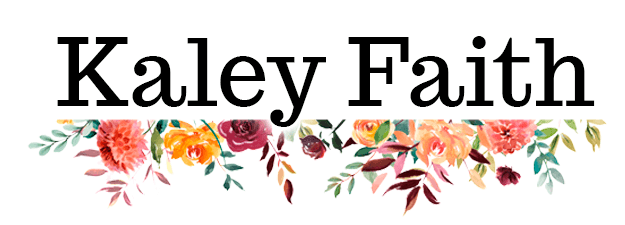
30 Mar Green Flags in Counseling
Going to counseling is an adventure that has highs, lows, struggles, and victories. It is being known by a human being who is there to support and facilitate healing, growth, and mental wellness. It can be a process to find the right counselor, but it is a worthy quest and one I want to support others through. We have already talked about red flags in my previous article here. So now, onto the green flags.
Ah, green flags.
Some of us are red/green color blind at times, and red can feel like green, and green can feel like red. Unfortunately, I’ve been handed red flags being told they’re green. I’ve been told something is kindness when it’s actually manipulation. I’ve been told something is scriptural when it’s actually misapplication. Needless to say, I sometimes don’t trust myself to understand the difference, and it is taking time to relearn my colors.
“This could be wildly harmful and I wouldn’t even know it!” I insisted.
“I’m not asking you to trust me. I’m asking you to make a judgment call based on what you’ve experienced. How many times has this been a safe place versus how many times has this not been a safe place?”
Mr. Counselor got me there. I took time and concluded that indeed, this was a safe place.
Other times we’re a tad more willful in our blindness. We close our eyes and hold up the red flag claiming it’s green for the sake of the life we’ve built around it. And sometimes we hold up the green flag insisting it’s red because we’re afraid to find out what it feels like to embrace grace.
This is my official announcement: Don’t do that. Defending why the damage is actually ok will ruin you. And escaping healthy circumstances because they feel foreign is a self-sabotage that is NOT worth the price of admission. Yes, I’m speaking of counselors, but these concepts obviously also translate to family, faith, and relationships.
With that said, let’s identify some green flags in counseling.
The Green Flags
Healthy Pushback
My favorite part about my current, healthy counseling experience is that I get to speak my mind with no apologies. Be it angry, sassy, or just plain untrue, I get to speak exactly how I feel. But if that’s all that counseling was – I would be in no better place. In fact, I’d probably be even more bound by the lies that I tell myself and others. The critical piece…is pushback. And not just any pushback, but healthy, non-judgmental, biblical, pushback. I’ve said some pretty unfortunate things at counseling. Anti-biblical things, in fact. And we both know the statements are incorrect, but there it is, coming out of my mouth with the passion and weight of a real-deal belief.
When I am wrestling with such things, I can trust my counselor to pause, look at me, and wait. If I have more to say, I say it. If I’m done, he speaks. He asks honest questions that inevitably poke holes in what I claim to feel is true. He treats the conversation with consideration, not brushing me off. Sometimes he simply looks at me and says he does not believe the statement to be true. Sometimes he tells parallel stories from books, movies, or even his own life showing how a similar struggle might look for someone else, and it makes it painfully obvious that it’s objectively a bad argument despite how real and unique it feels. We talk about why it feels true. We come up with ways for me to replace the lie with truth in my daily life.
And he also reminds me I have a choice. That emotions have a place and are important to pay attention to because they point to what’s going on inside. But ultimately, they are not God, and giving them lordship in our hearts is a recipe for destruction. He tells me again, how as Christians we have truth outside of ourselves. There is a rock. A firm foundation. And the truth is unchanging no matter the circumstances.
He doesn’t say it all, every time. But he doesn’t let a lie slip by unacknowledged either.
“I don’t believe it yet. But I want to. Tell me again next week?”
“As long as it takes.”
Support During and After a Trigger
To me, being triggered means thinking or talking about something that creates an overwhelming emotional response that is hard to manage. Maybe it comes from hearing or telling a story about childhood memories. Maybe it’s seeing a person or place that has historically been bad news. It could be the way a question is asked, the colors on the walls, or a smell as you walk down a hallway. Whatever the cause, triggers entail a sudden mental battle for peace, stability, and reason. Especially in the case of Post Traumatic Stress Disorder (PTSD), triggers are the primary vehicle for crisis.
And so, while the goal of counseling is to heal from the past trauma and reduce the magnitude of the impact, there inevitably comes a point where the healing process causes a trigger. There are awesome ways to work through traumatic memories without causing retraumatization (like EMDR!), but sometimes the process of pulling tough stuff from the dark and presenting it to the light is upsetting.
It was during a trigger (and resulting panic attack) in one of our appointments that I realized that my counselor was a trustworthy and trauma-informed ‘ally’ to join me on my journey back to sanity. In the middle of a story, I simply could not continue and melted into a puddle of frantic emotion. Instead of idly watching me with caution, as previous counselors had done, he engaged with me.
“How old were you at the time?” he gently asked. I took a second and then told him, before quickly resuming my attention to my inward panic.
“And what year was that?” he asked. Again, I was pulled back into the present, did some quick math, and after responding, I returned to the fury of emotion.
“So, then, how many years ago was that?” And then I finally looked up at him and smiled. I wanted to scream, “Stop asking me irrelevant questions and let me suffer in peace!!” but in that moment I realized that was literally the point. He was refusing to leave me to self-destruction. He was using simple questions to force logic into the conversation. He was far less interested in knowing years and ages as he was in seeing me get regulated and bring back the stability and logical thinking that reminds me I’m ok. With the same steadiness that can add and subtract, I soon was in a place where could remember that I am an adult in the present year. That moment in the past does not equal this moment in the present.
He has helped me through many panic attacks in his office, and he also equips me to handle them on my own. They are the real-life actions that I can take to minimize each episode, and it’s exactly what I was in desperate need of. (Read more about navigating panic attacks here.)
Active Relationship With God.
There are a lot of things to sort through when healing from trauma. Included in that list is how a person views themselves, how they view God, and how they view others. It shifts a person’s thought patterns and self-talk. It tinkers with the foundational beliefs that a person has built their life on. And because I am a Christian, it is non-negotiable for Christ to be part of the conversation.
That said, I strongly value having a counselor who is both current in counseling techniques, skills, and science, and also an active believer in Jesus Christ.
Because, on one hand, I’ve experienced counseling that revolved 100% around God. And, while I so desperately WANTED it to help, it was exhausting, confusing, and often too theoretical for me to apply. Instead of being offered real-time help during panic, I was offered tips like, “Just pray and give thanks according to Philippians 4:6 so you can have peace,” or “pray before bed” as the solution to my intrusive thoughts and flashback nightmares. It was unhelpful and frustrating and lent itself to resenting the verses and godly habits that were being offered.
And, on the other hand, I’ve also been in a situation where my counselor has pushed back on my statements of Christ being the only savior and the hope that I have for healing. The follow-up included her thoughts on religion, and how Christianity wasn’t necessarily special. That regardless of whether I was practicing Christianity, Buddhism, Hinduism, or New Age practices, it was the meditation and calming the mind that mattered. That wasn’t helpful either.
What has been helpful, is having a counselor who applies what he’s learned about brain science, utilizes therapy types supported by peer-reviewed studies, and uses his experience in the field while also engaging in theological conversations on the nature and character of God, offering unique ways to engage with God when I’m struggling, and celebrating the ways God is using certain things for my good and His glory. He shows me the parallels between the things taught in scripture and how they line up with the latest science. He guides me through different therapies while helping me be mindful of avoiding the pitfall of building my foundation on self-sufficiency.
I am a Christian. And so, in the context of letting someone influence my core beliefs and help me shape my view of self, God, and the world, I am so grateful to have someone I can trust to fight for me as a brother or sister in Christ.
The Green and the Red
Remember, you are the one choosing to seek out help, and it matters if you feel safe, understood, and welcome. Counseling is a healthy and important part of living with mental health struggles, and it may take time to settle into a healthy counselor relationship. It may not be easy, but finding the right match is worth it.
If you haven’t yet, check out the previous article, Red Flags in Counseling.
-
Life and Worship in the Midst of Apathy
I am driven by striving. In one conversation with a Christian mentor, the words blurted out before I could properly weigh them: “Striving is what makes life worth living.” I wasn’t completely wrong, but I definitely wasn’t right either. A more appropriate statement might have been “Striving towards a goal is life-giving to me,” and yet with tears in my eyes as I grieved the loss of my ability...
06 August, 2023 Mental Health Random No comment 0 Likes -
Invisible Exercise – Poems of a Friend
This poem is written by none other than my sister and friend, Sierra Wied. Having lived our lives in beautiful connectedness, I am thrilled to be able to share her musings, and am proud of how she is pressing into God’s desire for healing and hope. Enjoy!...
24 May, 2023 Mental Health No comment 0 Likes -
My “Quick” Tips For Living With Mental Health Challenges
Mental health isn’t something that is solved with 7 quick tips from a young person on the internet. I get that. The complexity of a person’s story and the depths of the needed healing are not concepts that are lost on me, and the more I live my life, the more I realize how little I know about the human heart and mind....
09 May, 2023 Mental Health No comment 0 Likes






Pingback:Red Flags in Counseling - Kaley Faith
Posted at 18:34h, 30 March[…] Developing a relationship with a counselor takes time, grace, and flexibility. It may not look the way you thought it would, or they may not get you right away. Committing to a month of seeing one counselor is a good way to give yourself space to engage in the sessions, weigh the impact, and sort through the flags before making an impulse decision based on awkwardness, difficulty in sharing, or weariness. Red flags are important to note, but so are green flags. Check out my next article, which talks about healthy counseling interactions and how I’ve seen them in my own experience, titled Green Flags in Counseling. […]
Pingback:My “Quick” Tips For Living With Mental Health Challenges - Kaley Faith
Posted at 16:19h, 09 June[…] And it may take time, but find a counselor who is a Christian. Find someone you can trust and one who is willing and able to walk with you toward wholeness. I have two articles discussing finding a counselor who is the right fit, and you can check them out here and here. […]